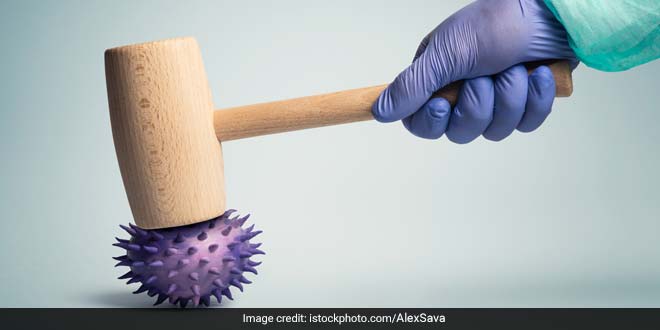Highlights
- As on August 1, the recovery rate among COVID-19 patients stands at 64.53%
- In mid-June, COVID-19 fatality rate was around 3.33%, now it is 2.15%
- India has 1,488 dedicated COVID hospitals & 3,231 COVID Health Centres
New Delhi: India’s COVID19 Case Fatality Rate (CFR) stands at 2.15 per cent and is the lowest since the first lockdown started, said the Union Health Ministry on Saturday (August 1), adding it has been continuously going down from around 3.33 per cent in mid-June. “The total number of recovered cases is nearly 11 lakh. With 36,569 patients discharged in the last 24 hours, the total recoveries have jumped to 10,94,374. The recovery rate stands at 64.53 per cent among COVID-19 patients,” said a health ministry press statement.
With such a consistent increase in recoveries, the gap between recovered patients and active COVID-19 cases currently stands at 5,29,271. Active cases (5,65,103) are under medical supervision, it said.
As on August 1, there are 1,488 dedicated COVID hospitals with 2,49,358 isolation beds, 31,639 ICU beds and 1,09,119 oxygen-supported beds, 16,678 ventilators. As many as 3,231 dedicated COVID Health Centres with 2,07,239 isolation beds, 18,613 ICU beds and 74,130 oxygen-supported beds and 6,668 ventilators have also been operationalised. Moreover, 10,755 COVID Care Centres with 10,02,681 beds are now available to combat COVID-19 in the country.
The Centre has also provided 273.85 lakh N95 masks and 121.5 lakh pieces of Personal Protective Equipment (PPEs) and 1083.77 lakh HCQ tablets to the States/ UTs / central institutions.
In the first lockdown, India was under a 21-day lockdown to contain the spread of coronavirus in the country from March 25 to April 14. Currently, the country is in Unlock-3 as part of phased re-opening.
According to the World Health Organisation, CFR is a measure of the severity of a disease and is defined as the proportion of reported cases of a specified disease or condition which are fatal within a specified time.
India on Saturday (August 1) reported 57,117 new COVID-19 cases in the last 24 hours, taking the country’s coronavirus tally to 16,95,988, said the Union Health Ministry.
As per the health ministry’s website, there are 5,65,103 active cases while 10,94,374 patients have been cured/discharged or have migrated.
A total of 764 deaths due to COVID-19 have been reported in the last 24 hours across the country, taking the death toll to 36,511.
(Except for the headline, this story has not been edited by NDTV staff and is published from a syndicated feed.)
NDTV – Dettol Banega Swasth India campaign is an extension of the five-year-old Banega Swachh India initiative helmed by Campaign Ambassador Amitabh Bachchan. It aims to spread awareness about critical health issues facing the country. In wake of the current COVID-19 pandemic, the need for WASH (Water, Sanitation and Hygiene) is reaffirmed as handwashing is one of the ways to prevent Coronavirus infection and other diseases. The campaign highlights the importance of nutrition and healthcare for women and children to prevent maternal and child mortality, fight malnutrition, stunting, wasting, anaemia and disease prevention through vaccines. Importance of programmes like Public Distribution System (PDS), Mid-day Meal Scheme, POSHAN Abhiyan and the role of Aganwadis and ASHA workers are also covered. Only a Swachh or clean India where toilets are used and open defecation free (ODF) status achieved as part of the Swachh Bharat Abhiyan launched by Prime Minister Narendra Modi in 2014, can eradicate diseases like diahorrea and become a Swasth or healthy India. The campaign will continue to cover issues like air pollution, waste management, plastic ban, manual scavenging and sanitation workers and menstrual hygiene.
[corona_data_new]





























